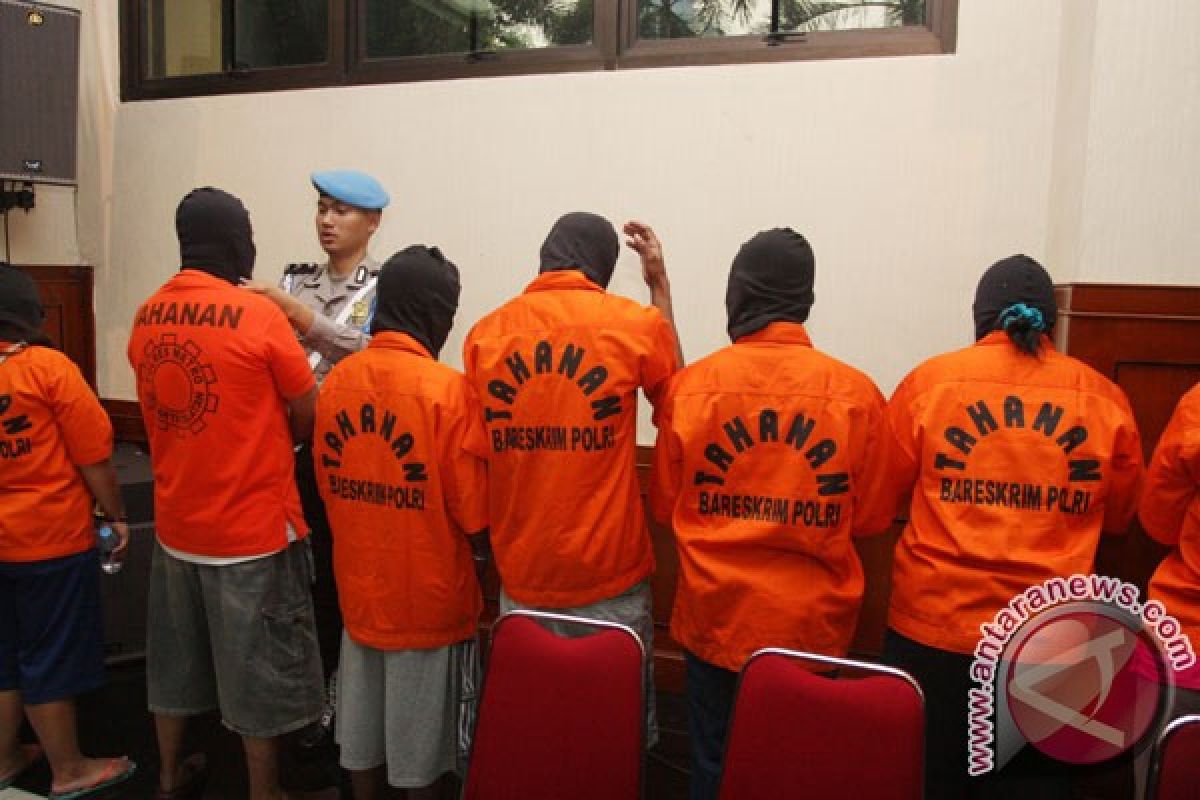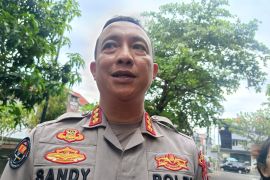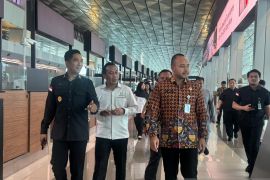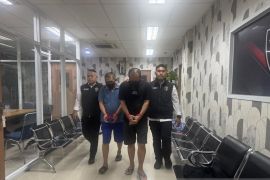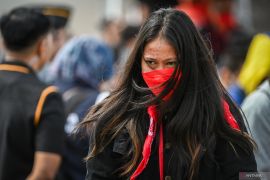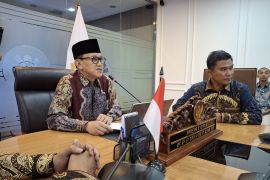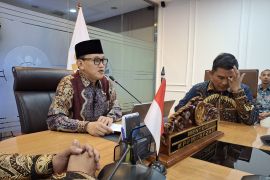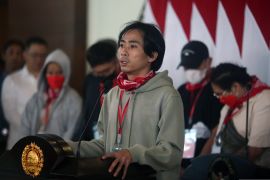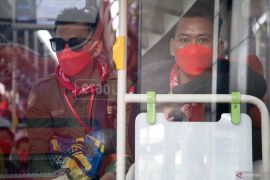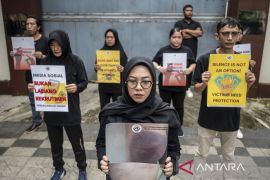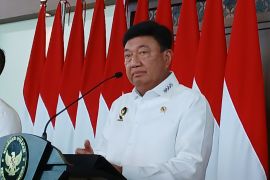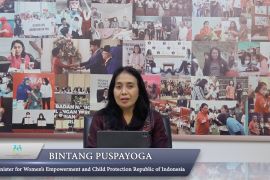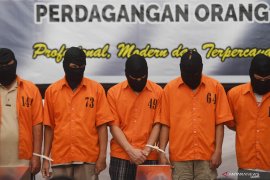Human trafficking engages issues of human rights and rule of law, of law enforcement and crime control, of inequality and discrimination, of corruption, economic deprivation and migration.
Although human trafficking has gathered momentum and several international organizations have developed approaches to address it, the phenomenon remains a serious crime, with grave human rights concerns, that is largely overlooked in crisis situations.
However, Women Empowerment and Child Protection Minister Yohana Yembise has stated that the government was committed to ending the Crime of Trafficking in Persons.
Women Empowerment and Child Protection Ministry has reported that Indonesia is currently one of the countries with the level of "human trafficking" the highest in the world due to the high public interest to work abroad illegally.
In a year, the Indonesian government handles 70 thousand cases of human trafficking, but many of them have not been recorded due to the high rate of such a crime during this time.
The high cases of human trafficking in Indonesia is due to the inability of women, as well as a lack of public understanding of employment procedures, so they decided to leave illegally abroad for work.
The rise of human trafficking cases has prompted the government to formulate various policies, programs and activities in its efforts to eradicate the Crime of Trafficking in Persons (TPPO) in Indonesia.
"Eradication of TPPO in Indonesia is something that must be done by the government," Yembise stated in a press release received here on Sunday.
Handling the TPPO, according to her, is not only the task of the government but also all parties, including the communities, businesses, nongovernmental organizations, and the media.
To that end, Minister Yembise, as the daily executor of Task Force on the Prevention and Handling of TPPO, has initiated the convening of National Coordination Meeting on the Prevention and Handling of Crime of Trafficking in Persons in Bali.
She explained that until now 31 task forces have been established at provincial level, and 192 at regional/municipal levels to handle the crime of trafficking in persons.
In addition, the government has formed a coalition, comprising seven ministries and institutions, to address and prevent human trafficking crimes and to protect its citizens abroad, according to Foreign Affairs Minister Retno L.P. Marsudi.
A memorandum of understanding (MoU) on forming the coalition to prevent human trafficking was signed by Foreign Affairs Ministry and six other ministries and relevant institutions last Tuesday.
The six other ministries and related institutions are the Womens Empowerment and Child Protection Ministry, Law and Human Rights Ministry, Social Affairs Ministry, National Police (Polri), Attorney Generals Office, and the National Body for Placement and Protection of Indonesian Workers.
With the inking of the MoU, the seven ministries and relevant institutions have agreed to increase the effectiveness of cooperation and coordination in order to combat crimes involving the trafficking of Indonesian citizens abroad as victims.
"The governments commitment to protecting the citizens is significant, and this is a priority for the Indonesian foreign policy," Marsudi emphasized.
The MoU was aimed at creating a national referral mechanism in the handling of Indonesian victims of human trafficking abroad, so the victims and cases can be handled optimally.
She explained that the number of Indonesian citizens abroad who became victims of human trafficking has increased from year to year.
"In 2013, Indonesian citizens were involved in 188 cases of human trafficking. In 2014, that number rose to 326 cases and then to 548 cases in 2015," Marsudi remarked.
Therefore, there is need to strengthen cooperation among agencies and institutions to prevent and combat human trafficking, and to protect the victims.
The MOU is very important form of cooperation. It also shows the governments commitment to combat human trafficking.
The MoU includes various areas in which the involved ministries and other stakeholders can cooperate, including joint identification, treatment of victims, preventive steps, exchange of data and improvement of human resource capacity.
All seven ministries/institutions agreed to enhance their cooperation and coordination as part of the efforts to combat crimes related to human trafficking in which Indonesian citizens are involved.
Indonesian foreign policy accords priority to protecting Indonesian citizens.
Maritime Affairs and Fisheries Minister Susi Pudjiastuti has also played her role by urging ASEAN member countries to foster political will to combat human trafficking activities in the waters of Southeast Asia.
At the ASEAN conference on human trafficking and employment in the fishing industry here recently, Susi stated that Indonesia needs to cooperate with other governments to address illegal fishing because it is also closely related to human trafficking.
The minister pointed out that several Indonesian citizens had become victims of human trafficking abroad.
"Some 700 thousand Indonesian people, who work as crew abroad, are prone to becoming victims of human trafficking," the minister pointed out.
To eradicate human trafficking, the minister affirmed that ASEAN member countries should have the political will.
The Indonesian National Police (Polri) had earlier uncovered a case of human trafficking in which Indonesian citizens were being transported to Malaysia to serve as commercial sex workers.
Chief of Polris Criminal Offenses Division Umar Surya Fana stated that the racket was unraveled after a victim had filed a report on May 3.
"We immediately conducted an investigation that led to the arrest of three suspects identified as AR alias Vio, RHW alias Rendi alias Radit, and SH alias Sarip," Fana stated at the Bareskrim Offices in Jakarta early this month.
He made assurance that the Polri will continue to investigate the case until all suspects are arrested. (*)
Reporter: Otniel Tamindael
Editor: Fardah Assegaf
Copyright © ANTARA 2016
